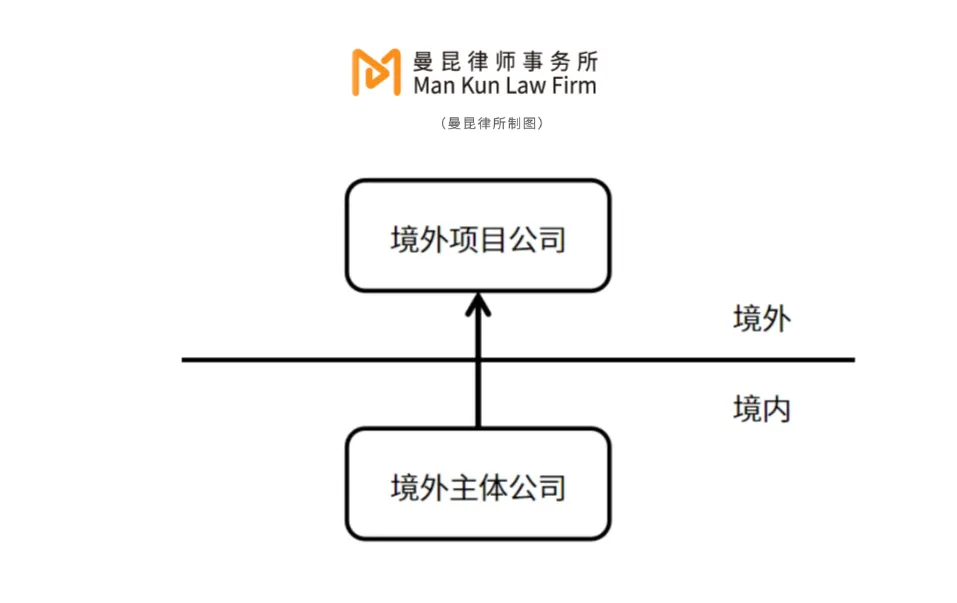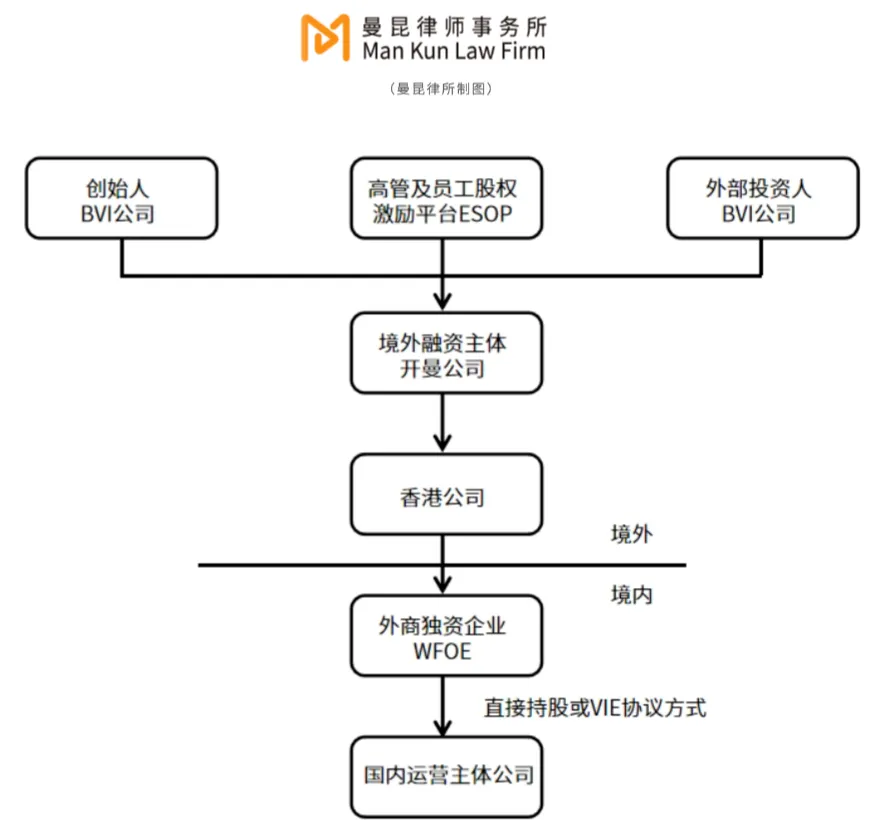Authors: Lu Wenlong, Liu Honglin
From April 6 to 9, the 2025 Web3 Carnival initiated by Wanxiang Blockchain Lab and HashKey Group was successfully held in Hong Kong. The event covered topics such as public chain development, DePIN, real-world asset chain RWA, privacy protection, cross-border payment Payfi and other popular tracks in the industry. The scale of the event venue and the number of registered visitors during the event also increased significantly compared with last year. Most of them were Chinese, including many visitors and practitioners from the mainland.

*Picture from the Internet
This also reflects an interesting phenomenon in the Web3 industry in the Chinese community. Due to the differences in policy supervision between the mainland and Hong Kong regarding the Web3 industry, many Chinese teams choose to place the market and project landing in Hong Kong, and the underlying technology development of the project in the mainland to meet compliance requirements. On the one hand, they can leverage Hong Kong's status as an international financial center and policy innovation to build the international influence of brands and products, and on the other hand, they can rely on the mainland's strong reserve of technical developers to iterate and update technology.
However, one of the industry pain points brought about by this model is how Web3 companies can legally achieve sustainable interaction between business segments in the mainland and overseas and achieve better cross-border flow of funds? For example, how can mainland projects legally go overseas, how can profits from overseas projects be legally remitted back, and how can overseas financing legally support the development of mainland teams.
In fact, Mankiw's team has encountered many mainland clients who have adopted the method of the boss personally paying in advance, or paying employees' overseas bank accounts, or paying U. In our view, these practices can be used to save the day in the short term, but in the long run they are neither compliant nor sustainable.
Compliance risk points of several common methods currently on the market
1. The boss’s personal account will make the payment first
In nature, it is a company loan and is not sustainable. Subsequent withdrawals from the company's income to the boss's personal account may cause the company's property to be mixed with the boss's personal property. Long-term accounts may be regarded as dividends, resulting in tax costs. If the advance payment is not reflected in the company's account, it may be considered as concealing employee income and suspected of evading personal income tax.
2. Overseas payments to employees’ overseas bank accounts
It does not comply with the current salary payment management regulations, which brings inconvenience to employees and may lead to tax evasion and tax risks. In addition, the social security and provident fund payment of mainland employees are linked to wages. If they are paid directly from overseas, it may lead to damage to employees' rights and interests. Later, the company may claim for the payment of rights and interests, and the company will also face administrative penalties.
3. Payment of virtual currencies such as USDT
It does not comply with the current salary payment management regulations, brings inconvenience to employees, and exchanging U for legal currency has a greater compliance risk. It is currently a high-incidence administrative and criminal violation in the mainland. Once the mainland public security intervenes, it may lead to the freezing of mainland bank accounts and the deduction of funds. In serious cases, it may lead to suspected criminal charges such as illegal business operations or assisting information network criminal activities or concealing criminal proceeds.
Causes of pain points
1. Regulatory policies limit the application scenarios of some products to overseas
Whether it is the 2013 "Notice on Preventing Bitcoin Risks" to the 2017 "Notice on Preventing Token Issuance and Financing Risks", and then to the 2021 "Notice on Further Preventing and Dealing with Virtual Currency Trading Speculation Risks", the regulatory standards have been tightened, especially at the level of product promotion and trading. In terms of red lines, there are currently three main areas that are strictly prohibited in the mainland, namely token issuance and financing and virtual currency derivatives trading, virtual currency exchange services, and Bitcoin mining business.
This also means that the above-mentioned business can only be conducted overseas, and strict attention must be paid to avoid association with mainland users.
However, the other sections mentioned at the beginning of this article, such as public chain development, DePIN, real-world asset chain RWA, privacy protection, and cross-border payment Payfi, are actually not prohibited in the mainland at present. In some aspects, such as real-world asset chain RWA projects, the official attitude is still encouraging under the premise of legality and compliance. For example, the first RWA project in the agricultural field that was previously promoted by the Shanghai government. If you are interested, you can read the previous article of the Mankiw team: Lawyer Mankiw | Detailed explanation of the specific model of the first RWA project in the agricultural field "Maluk Grape RWA".
2. Mainland practitioners focus on neutral technology development
According to the "Blockchain Information Service Management Regulations" and "Guiding Opinions on Accelerating the Promotion of Blockchain Technology Application and Industrial Development" and other policy documents, the current incentive policies for blockchain technology in mainland China are mainly concentrated in the development of underlying technologies (alliance chains, privacy computing), industrial digital transformation (supply chain finance, digital government, food traceability, etc.), and industry standard formulation, aiming to promote the integration of blockchain and the real economy. In addition, the 14th Five-Year Plan clearly proposes to list blockchain as a key industry in the digital economy, emphasizing collaborative innovation with technologies such as artificial intelligence and big data. Local governments also provide certain policy support in terms of financial subsidies, talent introduction, and the construction of blockchain industrial parks.
Several common ways to legally repatriate overseas income or financing to the Mainland
1. Establish a subsidiary or invest in shares overseas and repatriate profits of the subsidiary
Conduct overseas business by setting up subsidiaries or investing in shares overseas, and then legally remit the profits of the subsidiaries back to the mainland parent company.

Specific procedures: In accordance with the "Measures for the Administration of Overseas Investment by Enterprises" (referred to as "NDRC Order No. 11"), the "Measures for the Administration of Overseas Investment" (referred to as "MOFCOM Order No. 3") and other laws, regulations and policies on foreign exchange management, on the premise that the authenticity, necessity and rationality of overseas investment are met, mainland enterprises submit applications to the NDRC, the Ministry of Commerce and the State Administration of Foreign Exchange (delegated to banks for processing) in their region. After obtaining approval or filing procedures from the above-mentioned departments, they remit mainland funds to overseas subsidiaries to conduct overseas business operations.
When going through the overseas investment registration procedures, you need to pay attention to whether the overseas investment destination country is a sensitive country/region, whether the industry to which the overseas investment project belongs is a sensitive industry, and do a good job of preliminary research and preparation of application materials.
In addition, when judging the rationality and necessity of mainland enterprises' overseas investment, regulatory authorities often have certain indicator requirements for the mainland enterprises' years of establishment, profit levels, debt levels, etc.
2. Transferring overseas financing funds back to the mainland for use
Domestic residents or enterprises raise funds by building overseas structures and then reinvest the overseas financing funds into the mainland.

Specific procedures: In accordance with the Notice on Issues Concerning Foreign Exchange Administration of Overseas Investment, Financing and Round Trip Investment by Domestic Residents through Special Purpose Vehicles (Huifa [2014] No. 37), the Regulations on Foreign Exchange Administration and other laws, regulations and policies, on the premise of ensuring the authenticity of the source of funds and the purpose of overseas funds, individual shareholders of mainland enterprises submit an application to the foreign exchange administration bureau in the region where they are located (decentralized to banks for processing). After obtaining filing registration, they can carry out equity changes or control agreements of domestic companies, foreign investors can inject capital, and foreign financing funds can be transferred back to the mainland for use or round trip investment.
3. Signing a service trade contract with overseas customers and collecting service fees
Through trade in services (telecommunications, computer and information services, research and development, professional management consulting services, etc.), we reach software service or commercial consulting service agreements with overseas customers and charge fees in accordance with the agreement.
For example, if an enterprise is engaged in software export business, if it is delivered via online download or other electronic forms, it can go to the bank to collect foreign exchange with other transaction documents such as contracts and invoices. If the software is provided in physical media with permanent use rights, it should be collected in accordance with relevant regulations on trade in goods.
It is worth noting that domestic enterprises engaged in Web3-related businesses need to pay attention to compliance, pay attention to the latest industry trends, and avoid legal risks. If you also encounter compliance requirements for domestic and foreign income and cost expenditures, please contact Mankiw Attorney for consultation.















